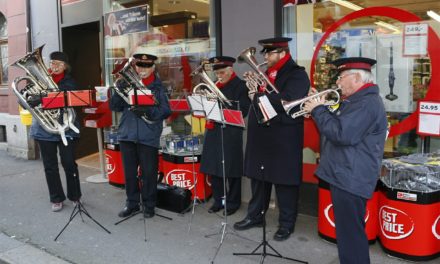
TRAVEL TIPS – Street Smarts
The 2010 Winter Olympics will be held February 12-28, 2010, in Vancouver, British Columbia, Canada, with some events held in the resort town of Whistler nearby. They are the third Olympic Games hosted by Canada, and the first by the province of British Columbia. Previously, Canada was home to the 1976 Summer Olympics in Montreal and the 1988 Winter Olympics in Calgary. The 2010 Games will also be the first—Winter or Summer—to have an Opening Ceremony held indoors. Vancouver, which will be the most populous city ever to hold the Winter Games, will also be the warmest: in February, when the Games will be held, Vancouver has an average temperature of 4.8 °C (40.6 °F).
OTHER RECENT DYK TOPICS:
The French population spends more time eating and sleeping than any other highly developed country, according to a report published by the Organization for Economic Cooperation and Development? The French sleep an average of nine hours a night and spend more than two hours a day eating.
 Angel Falls is the world’s highest waterfall at 979 m (3,212 ft), with a clear drop of 807 m (2,647 ft). It is located in the Canaima National Park, in the Gran Sabana region of Bolivar State, Venezuela. The height of the falls is so great that before getting anywhere near the ground, the water is vaporized by the strong winds and turned into mist. The base of the falls feeds into the Kerep river (alternately known as the Rio Gauya) which flows into the Churun River, a tributary of the Carrao River. In the indigenous Pemon language Angel Falls is called Kerepakupai merú meaning “waterfall of the deepest place”.
Angel Falls is the world’s highest waterfall at 979 m (3,212 ft), with a clear drop of 807 m (2,647 ft). It is located in the Canaima National Park, in the Gran Sabana region of Bolivar State, Venezuela. The height of the falls is so great that before getting anywhere near the ground, the water is vaporized by the strong winds and turned into mist. The base of the falls feeds into the Kerep river (alternately known as the Rio Gauya) which flows into the Churun River, a tributary of the Carrao River. In the indigenous Pemon language Angel Falls is called Kerepakupai merú meaning “waterfall of the deepest place”.
The falls are sometimes referred to as Churun-meru, an error, since that name corresponds to another waterfall in the Canaima National Park. Churun in the Pemon language means “thunder”.
 Congestion pricing (also known as Congestion charges) is a concept from market economy regarding the use of pricing mechanisms to charge the users of public goods for the negative externalities generated by the peak demand in excess of available supply. Its economic rationale relies upon the assumption that it is consumer over-demand, rather than provider under-supply, that is responsible for the resource allocation problem.
Congestion pricing (also known as Congestion charges) is a concept from market economy regarding the use of pricing mechanisms to charge the users of public goods for the negative externalities generated by the peak demand in excess of available supply. Its economic rationale relies upon the assumption that it is consumer over-demand, rather than provider under-supply, that is responsible for the resource allocation problem.
Usually this means increasing prices during certain periods of time or at the places where congestion occurs; or introducing a new usage tax or charge when peak demand exceeds available supply in the case of a tax-funded public good perceived by most users to be supplied for free.
Milan, London, Stockholm and Singapore all have imposed congestion charges on drivers in an effort to improve the air quality of their cities.





